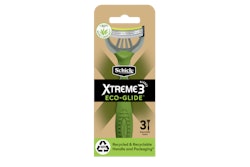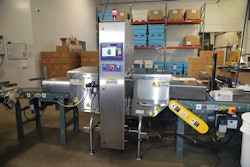Fossil fuels like petroleum are finite; there’s only so much of it and its in demand. But plants like corn and potatoes can be regrown and re-used (practically) indefinitely, so they present a renewable alternative base or feedstock for the creation of plastics. We’ll take a look at two brands who are replacing a portion of their existing plastic structures with bio-based material and see what kind of sustainability bona fides they’ve been able to add.
Quick hits:
- One type of plant-based rollstock, used to replace some petroleum-based plastics in a thermoformed pasta tray, is certified RIC1 for the PET1 recycling stream, so it can be recycled as if it were PET.
- 28% of the structure was replaced with corn-based bio-plastic.
- A French fried potato producer using a polypropylene bag (OPP) with LLDPE sealant layer replaced the entire sealant layer with, of all things, a potato-based bio-plastic.
- The potato bag using potato-based plastic withstands tough packaging conditions on automated vertical form/fill/seal equipment, gives good seals, and displays puncture resistance and toughness.
Related to this episode:
- Packaging World's report on Cucina Fresca Gourmet Food's plant-based replacement to their fossil-based packaging
- Flax4Life's challenge of switching from PE to Plant-Based PLA Material
- Bacardí's introduction of 100% biodegradable spirits bottles
- Visit PMMI's Business Intelligence Library and download their executive summaries of their latest reports for free.
 | Read the transcript below: |
I'm Matt Reynolds, Editor of Packaging World magazine back with another edition of Take Five. Today, I'd like to highlight a certain subsection of the much wider sustainability trend. And that's the practice of some brands replacing some of their traditional fossil fuel-based or petroleum-based plastics with bio-based plastics. And the advantage there is bio-based plastics are renewable. If it's based on corn, you can always plant another crop of corn. But there's a finite amount of petroleum left and once it's gone, it's gone.
A lot of brands have been not necessarily replacing a one-to-one of the entire pack with bio-based plastics, but at least some portion of it, or possibly one layer or one section of a multi-layer structure. One such brand was Cucina Fresca. This is a Seattle-based specialty pasta and pasta sauce brand that had been using traditional thermoformed MAP, or modified atmosphere packaging, with a film lidding.
Now, the company being on the West Coast, had been known for doing some activities around sustainability, both internally in their own company and also in their community. So, it didn't make a whole lot of sense to some of their consumers that they were using single-use plastics. Their eyebrows were raised in that sense.
At the same time, Cucina Fresca knew that in order to get their product freshly to their consumers and without breakage of the pack or anything like that, or spoilage, they still needed to use modified atmosphere packaging.
So they went on a little bit of a journey, a packaging journey, where their original pack, their original modified atmosphere pack, was made of PVC, which is polyvinyl chloride, with an EVOH barrier. And again, the film lidding, with most likely a pressure sensitive label.
Their first step away from that was the move away from PVC to PET, but they still had the EVOH layer. But then they spoke to the folks at Sealed Air who had to convince them on, Plant-Based Rollstock material, or PBR for short.
The use of the Sealed Air and it's Cryovac branded Sealed Air Plant-Based Rollstock basically replaced all the EVOH in that structure. And it also replaced some of the PET. In fact, I think the total amount in the thermoformed web structure was 28% of the PET and EVOH was replaced. But when you add in the film lidding, which the company maintained their legacy film lidding, that number came down to around 24%.
But what's really interesting to me is that this new PBR material from Sealed Air, from Cryovac, is a one-to-one replacement in the PET or the RIC1 PET recycling stream. So, that product acts like PET in the recycling stream. So consumers can just go ahead and recycle it like traditional PET.
Today I have one more example of replacing bio-based plastics for existing fossil-based or petroleum-based plastics for you. And again, you're not always going to find huge percentages, but every little bit counts, particularly for brands that are working towards 2025 or 2030 sustainability goals. So, any place that they can chip away, they're finding success in replacing some of these fossil-based plastics with the bio-based.
Another one that I thought was particularly interesting comes from a potato producer, Lamb Weston. The brand is Alexia, frozen french fries. They have a whole host of different products, but this particularly is for both sweet potato and regular french fries.
And what's interesting to me, is that they replaced what was the sealant layer, an LDP sealant layer around an OPP or Oriented Polypropylene bag. They replaced that sealant layer with a potato starch-based material that was able to achieve the same properties as LDPE. And bear in mind that this company is using vertical form fill seal on a frozen product I believe. I could be wrong on that, but I believe it's a frozen product that's going through these baggers and automatic baggers and so on.
And then they've got a long journey, logistics-wise, to wherever they end up on a store shelf in a freezer. So, there's a lot that these bio-based plastics can do and replacing one-to-one with virgin, in this case, LDPE as a sealant layer. So, two really interesting areas where we saw virgin petroleum-based plastics replaced with plant-based or bio-based replacements.
And in this case, I believe it was 16% of the actual overall bag was replaced. But when you amortize that over thousands and hundreds of thousands of bags over a period of time, it really does make a dent.
That's all the time I have today. Again, Matt Reynolds, signing off. Hope you enjoy today's Take Five with Packaging World.

























